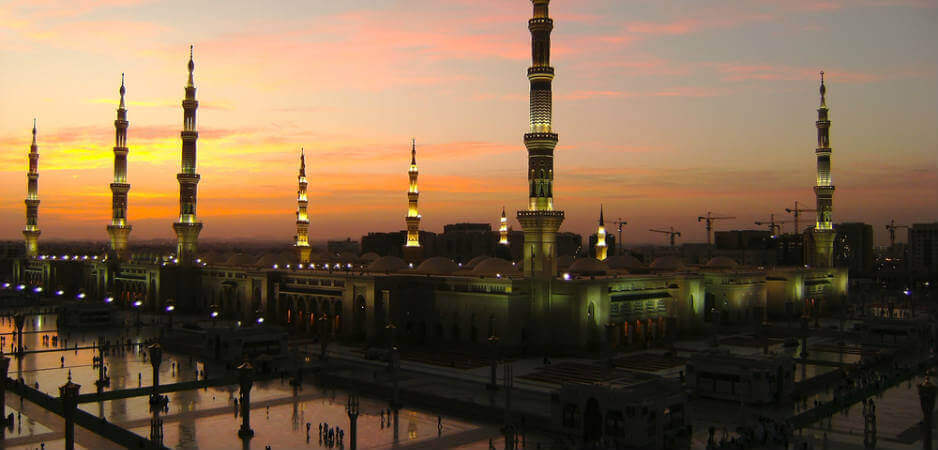Saudi Arabia’s new crown prince wants to rewrite the rules of Islam to secure his regime’s future. Can he succeed?
Change is usually measured in decades in the conservative Kingdom of Saudi Arabia. That’s what makes the revolution triggered by its young, impatient crown prince so noteworthy. Mohammad bin Salman showed his hand in October during a speech to an investment conference in Riyadh when he said, “We are returning to what we were before — a country of moderate Islam that is open to all religions and to the world.”
Alluding to the usual slow pace of change in his country, he added: “We will not spend the next 30 years of our lives dealing with destructive ideas. We will destroy them today.”
It’s a risky gambit for the 32-year-old crown prince, who was just appointed to the post in June by his father, King Salman bin Abdulaziz. The speech comes amid a series of reforms that are shaking the foundations of the Saudi monarchy, bringing its very legitimacy into play. Not just the prince’s own survival is at stake, but that of the entire regime.
Saudi Arabia’s absolute monarchy rests on Islam as its foundation: Its constitution is the Quran and the Sunna of the Prophet Muhammad; its legal system is based on Islamic law. The king’s official title is Custodian of the Two Holy Mosques, and his legitimacy rests on his ability to be a custodian of the land where Islam began and its holy cities of Mecca and Medina.
Saudi royals have historically protected themselves from threats to that position by appeasing more conservative Islamists with strict adherence to Islamic values and rituals at home and millions of dollars in funding for the spread of the faith abroad, including to extremist groups that have metastasized into serious terrorist threats such as al-Qaeda. But this process has broken down in recent years, starting in 1990 when the kingdom’s willingness to accept US and other Western troops on its territory to beat back a threat from Saddam Hussein made an enemy out of al-Qaeda leader Osama bin Laden, scion of a rich Saudi family close to the royals.
The September 11, 2001, attacks on the United States accelerated the breakdown to the point where the Saudi regime became a target of extremists. Since 15 of the 19 attackers were Saudi nationals, Riyadh found itself under pressure to choose sides, and it chose closer ties with the United States. Attacks on Saudi soil have not only targeted US troops and other foreigners, but also Shia Muslims and members of the royal family. Meanwhile, the prognosis for Saudi Arabia’s oil-based economy worsened, while the Arab Spring prompted unrest among a population where 70% percent are under the age of 30.
Prince Mohammad’s program is as pragmatic as it is revolutionary: In order to diversify Saudi Arabia’s economy away from oil and provide a sustainable future for its youth boom, the nation must be more open to the secular world. Open hostilities with Islamist extremists have made appeasement unworkable and victory essential, but that doesn’t mean it will succeed.
Since Prince Mohammad was elevated, his father has decreed that women should be allowed to drive — a reformist priority for years — and watch public sporting events. But the most ambitious of the reforms is aimed at rewriting the rules of Islam itself: A royal decree of October 17 established a religious center to examine the examples and teachings of the prophet Muhammad to screen out those considered fake or that have been interpreted to justify extremism and terrorist violence. The center will gather Islamic scholars from around the world to participate in the effort. Its establishment comes in the wake of a purge of scholars within Saudi Arabia that included the jailing of several prominent clerics and proposed changes to religious education.
In a statement, the Saudi Culture and Information Ministry said the center will “eliminate fake and extremist texts and any texts that contradict the teachings of Islam and justify the committing of crimes, murders and terrorist acts.” If successful, the effort will help relieve concerns that the reforms would detach the Saudi regime from the Islamic sources of its legitimacy.
But the top-down nature of the reforms carries a huge risk. None of the reforms are aimed at easing the regime’s iron grip on its population, and there’s no sign of a relaxed tolerance of dissent. Liberal dissidents who might otherwise provide valuable support for the reforms, such as Raif Badawi, remain in prison. Meanwhile, there are plenty of centers of Islamic scholarship outside the control of the Saudi state that could compete for the loyalty of Saudi Muslims disappointed by the regime’s reforms — most notably in Iran, Riyadh’s regional rival.
Previous top-down efforts in the Middle East have not produced sustainable change. Shah Mohammad Reza Pahlavi’s reformist policies helped spark the clerical revolution against him in 1979 that established the current Islamic Republic of Iran. In Turkey, the secular reforms established by Mustapha Kemal Ataturk’s iron fist are systematically being rolled back after nearly a century by Islamist President Recep Tayyip Erdogan, with the apparent support of a majority of his fellow citizens.
Crown Prince Mohammad has described himself as being a man in a hurry. But, if he doesn’t rush the development of a system in which his people can share the political and economic benefits of his reforms, the whole endeavor might ultimately fail.
The views expressed in this article are the author’s own and do not necessarily reflect Fair Observer’s editorial policy.
Photo Credit: AHMAD FAIZAL YAHYA / Shutterstock.com
Support Fair Observer
We rely on your support for our independence, diversity and quality.
For more than 10 years, Fair Observer has been free, fair and independent. No billionaire owns us, no advertisers control us. We are a reader-supported nonprofit. Unlike many other publications, we keep our content free for readers regardless of where they live or whether they can afford to pay. We have no paywalls and no ads.
In the post-truth era of fake news, echo chambers and filter bubbles, we publish a plurality of perspectives from around the world. Anyone can publish with us, but everyone goes through a rigorous editorial process. So, you get fact-checked, well-reasoned content instead of noise.
We publish 2,500+ voices from 90+ countries. We also conduct education and training programs
on subjects ranging from digital media and journalism to writing and critical thinking. This
doesn’t come cheap. Servers, editors, trainers and web developers cost
money.
Please consider supporting us on a regular basis as a recurring donor or a
sustaining member.
Will you support FO’s journalism?
We rely on your support for our independence, diversity and quality.







